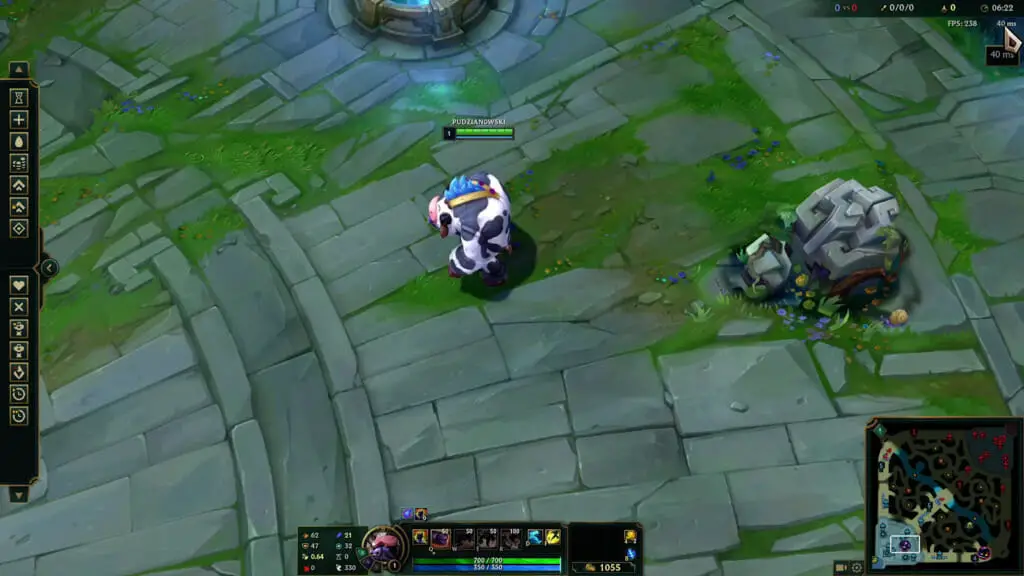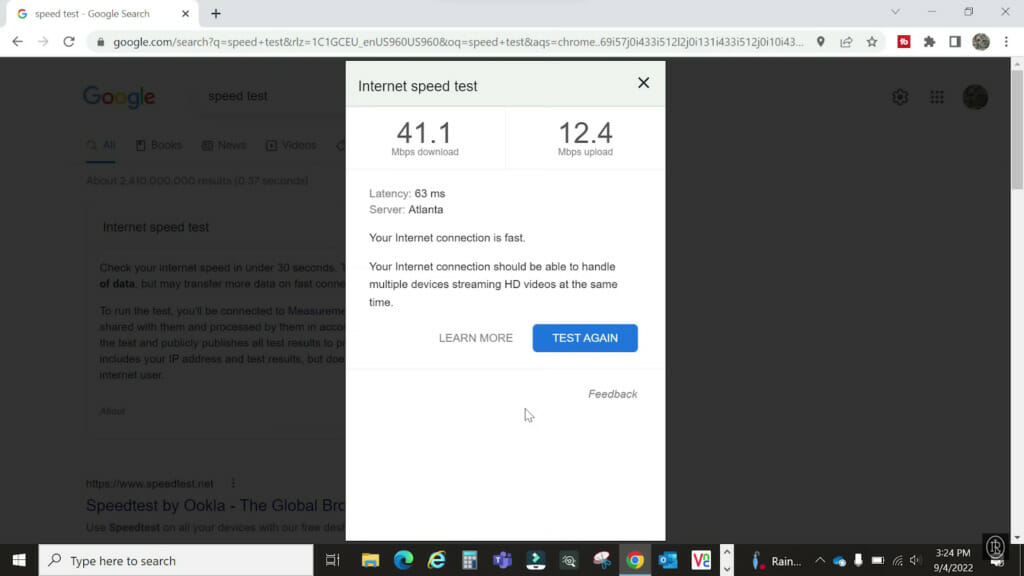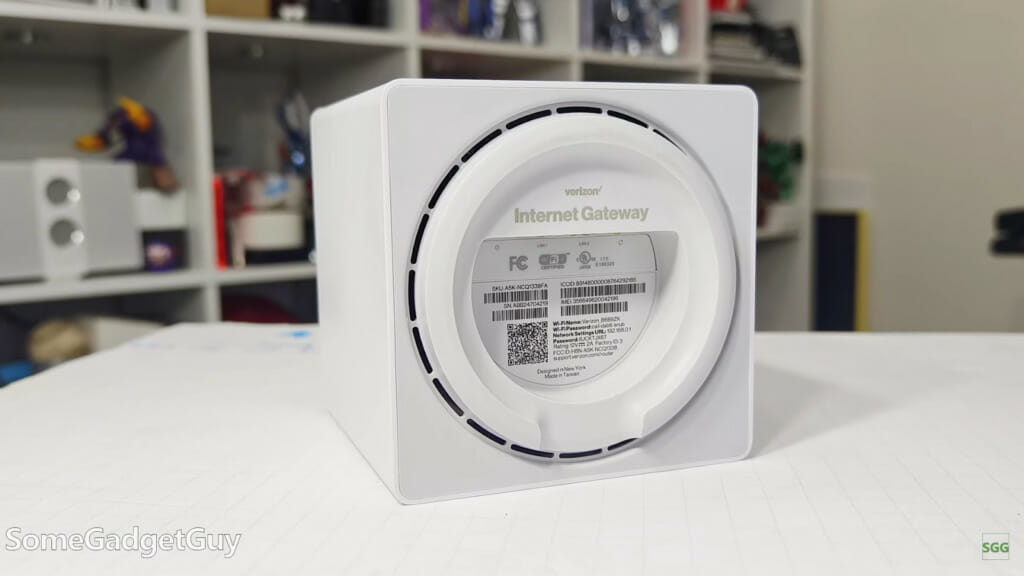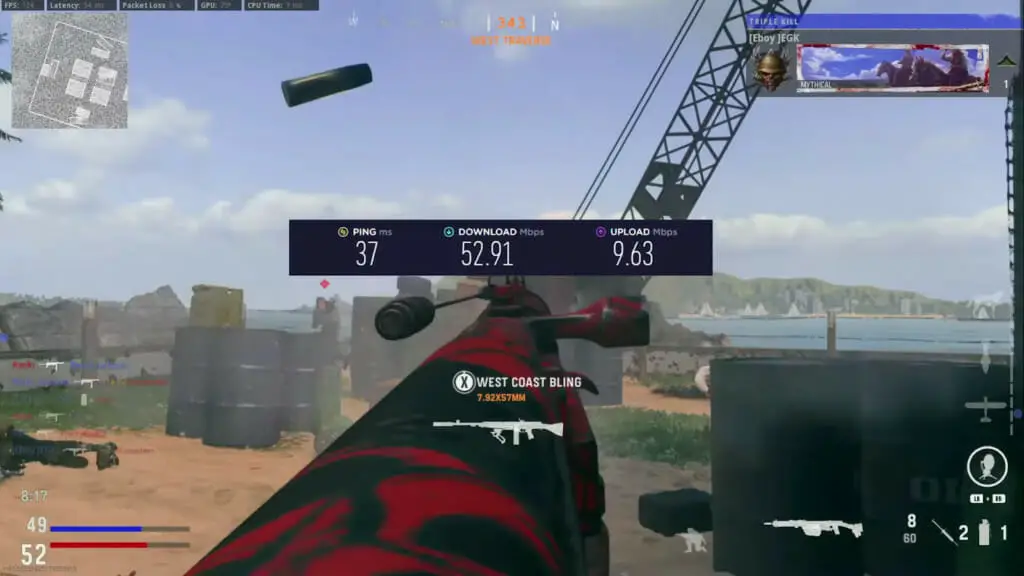Fixed wireless internet is great for gaming since it provides faster and more stable connectivity. Users can expect around 25 to 30 Mbps of internet speed with a minimum download speed of 10 Mbps and an upload speed of 1 Mbps. This is certainly enough for most competitive online games, but some providers even offer packages with higher speeds.
I explain all the facts about fixed wireless internet for gaming below to help you decide whether it’s the right match for you.
Quick Summary Of Fixed Internet For Gaming (Pros/Cons):
| Issue | Pros | Cons |
|---|---|---|
| Advantages | Wide service area, High speeds even in rural areas, High or no data cap | It might not be enough for extremely heavy users |
| Speed | It provides a ping rate of 25 ms to 30 ms, which is enough for most competitive online games | Usually, high or unlimited |
| Latency | Around 25 to 30 Mbps, with a minimum download speed of 10 Mbps and an upload speed of 1 Mbps. Depending on the provider, it can reach a maximum speed of 1,000 Mbps. | Higher than fiber and cable internet |
| Suitability for Gaming | Generally good for online gaming due to relatively low latency and stable connection | In competitive gaming, wired connections like Ethernet might be superior |
| Weather Effect | – | Slows down during bad weather due to a need for a clear line of sight |
| Data Cap | Usually high or unlimited | – |
How Good is Fixed Wireless Internet for Gaming?
Consider switching to fixed wireless internet to reduce lag and improve your gaming experience.
Generally, it can reach a maximum speed of 1,000 Mbps, but most users get around 25 to 30 Mbps. Fixed wireless internet provides at least a 10 Mbps download speed and 1 Mbps upload speed. While this is enough for competitive online games, some providers offer higher internet speeds that cap 20 Gbps.

Best of all, fixed wireless internet provides fast and consistent service. Whether playing League of Legends or CSGO, you won’t have to worry about sudden lag while in-game.
Advantages of Fixed Wireless Internet
1. Wide Service Area
Fixed wireless internet has a large service area extending to rural areas.
Leased lines are typically required for telecommunication like internet connectivity and SIM network. However, fixed wireless internet isn’t limited by the availability of leased lines. Fixed wireless internet uses Point-to-Point (PtP) wireless connections using antennas to provide internet services across far areas.
2. High Speeds, even in Rural Areas

Fixed wireless internet is the only wireless connection that rivals wired internet speeds and performance. Depending on your provider and location, fixed wireless internet reaches a maximum of 1,000 Mbps of upload and download speeds.
While the internet speed slows as you get farther away from the signal provider, those in rural areas can still expect high speeds while gaming.
3. Zero or High Data Cap
Fixed wireless providers commonly offer unlimited or 100 GB of data per month. The high data cap should be enough to last you through the month, even if you’re playing data-heavy games or streaming.
Disadvantages of Fixed Wireless Internet
1. Latency Issues
Fixed wireless internet averages around a 30 ms latency rate. While that’s acceptable for most games, the larceny rate generally falls behind cable and fiber connections.
Latency is the time it takes for a data packet (your actions in-game) to transfer to the server and then get processed by the server. This matters greatly in competitive online games since your in-game actions may appear sluggish compared to other players.
2. Slows Down in Bad Weather
Fixed wireless internet needs a clear Line of Sight (LoS) to signal providers for it to work. Weather obstructions like heavy rain can obstruct the LoS. Expect slower internet speeds during bad weather, but it should not affect your gaming experience.
3. Falls Behind Wired Connections

Wired internet connections like Ethernet are still king for stable, fast, and secure internet connectivity.
Wireless fixed internet provides users with a comfortable 30 Mbps internet speed. This is typically fast enough to minimize lag issues in competitive games like Apex Legends and Valorant.
To increase your internet speed further, you must contact your provider for an upgrade or switch to a wired connection.
Internet Requirements for Online Games
Before you decide on a fixed wireless internet connection, let’s look at the internet requirements for gaming.
A 3 to 4 Mbps download speed is enough for a seamless online game session. However, this number only considers one-player games and is the minimum requirement for most competitive online games.
Internet requirements for online gaming are split into three categories:
- Download Speed: The data transfer speed from the server to the game.
- Upload Speed: The data transfer speed from the game to the server.
- Ping/Latency Rate: The overall delay between in-game action and its effect on screen.

Generally, a lower ping rate means a better gaming experience.
A high ping rate means a higher delay between in-game action sequences and effects. For example, even if you’re spamming the attack button on your keyboard, it might take a while for the action to translate in-game if your ping is high. This causes many players to lose their games, especially during key moments.
Here are some average latency rates; as you can see, a lot can depend on the package and provider you were using.
Latency Rates:
| Fixed Wireless Internet | DSL | Fiber | Cable | Satellite | |
|---|---|---|---|---|---|
| Best Gameplay (≤20 ms) | – | – | 1 ms – 3 ms | 5 ms – 20 ms | – |
| Good Gameplay (20 ms to 50 ms) | 25 ms – 30 ms | 30 ms – 50 ms | 1 ms – 3 ms | 5 ms – 20 ms | – |
| Average Gameplay (50 ms to 90 ms) | 25 ms – 30 ms | 50 ms – 70 ms | – | – | 80 ms – 90 ms |
| Poor Gameplay (90 ms to 200 ms) | – | 100 ms – 150 ms | – | – | 150 ms – 200 ms |
| Extremely Poor Gameplay (>200 ms) | – | >200 ms (rare) | – | – | >200 ms |
Please note these numbers are approximations. Latency can vary based on several factors, such as the quality of the infrastructure, location, internet service provider, and more.
- Fiber and Cable internet often provide the lowest latency rates, suitable for ‘Best’ and ‘Good’ gameplay.
- Depending on specific circumstances, fixed Wireless and DSL can provide ‘Good’ to ‘Average’ gameplay.
- Satellite internet typically has the highest latency due to the distances
The internet requirements for online games are generally categorized into the following:
- Best Gameplay: 20 ms or lower
- Good Gameplay: 20 ms to 50 ms
- Average Gameplay: 50 ms to 90 ms
- Poor Gameplay: 90 ms to 200 ms
- Extremely Poor Gameplay: higher than 200 ms
Fixed wireless internet provides a ping rate of 25 ms to 30 ms. This speed is enough for most competitive games without any visible in-game lags. Moreover, the connection is stable enough that the ping won’t suddenly rise while you’re mid-game.
References
AT&T Business. www.business.att.com/resources/knowledge-center/what-is-latency-impact-on-gaming-streaming.html
Regional Tech Hub. https://regionaltechhub.org.au/improve-connection/point-to-point-connections/
Video References
HardReset.Info
vprftw

